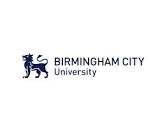The course will develop your transferrable skills embedded across different modules on the course as well as your engagement with our Graduate+ employability programme.

The course will develop your transferrable skills embedded across different modules on the course as well as your engagement with our Graduate+ employability programme. The course is also accredited by Chartered Institute for Securities and Investments (CISI). Designed to equip you with technical knowledge and skills in line with the curriculums of professional bodies such as the CFA Institute and CISI UK, as well as a range of employability attributes, the course will develop you as a work-ready graduate for careers in Finance and Investment across different industries.
As you progress, you will become more effective and creative in problem solving, as well as being able to critically advise individuals and companies in the UK and internationally. The modules are designed to enhance and develop your theoretical understanding from an academic perspective but also to apply acquired knowledge to the finance and investment sector.
The course is designed with some mandatory subject areas which provide the key underpinning knowledge for the course however allows you an opportunity to select some subjects based on your specific areas of interest. Therefore, during the second and final year of the course, there will be more flexible learning opportunities that will enable you to specialise in particular subject areas, as well as allowing you to tailor your course to a specific career path.
The course also has the option of a sandwich year, wherein you'll get to go on a year-long industry placement, giving you invaluable real-world employment experience. The international focus of the course is derived from the diversity of the student body and the teaching team, plus the use of international teaching materials. Moreover, students can choose to spend a year or a full semester studying their modules overseas at a partner institution. While doing this course, you will have wide variety of opportunities to compliment your studies.
Our earlyhistory can be traced back to the five individual colleges which would be brought together as The City of Birmingham Polytechnic in 1971.
Birmingham College of Art has its roots back in October 1843, when the Birmingham Society of Artists opened the Birmingham Government School of Design. I
n 1884 the School evolved into Birmingham College of Art, moving to a beautiful purpose-built Venetian Gothic building on Margaret Street designed by John Chamberlain. Today Margaret Street, which still houses our Department of Art, is a Grade I Listed Building.
In 1888 Birmingham School of Jewellery, which was based in Ellen Street, became a branch of the College of Art. Two years later a new building was opened in Vittoria Street which has been the School's home ever since.
The School of Architecture was established within the College of Art in 1909 and won Royal Institute of British Architects (RIBA) recognition in 1923 and 1930 to become one of the UK’s major schools of architecture. On entry into the Polytechnic, the School became a leading department of the Faculty of the Built Environment.
Birmingham School of Music developed as a department of the Birmingham and Midland Institute around 1859. The first phase of the present building in Paradise Circus was opened in 1973 by HM The Queen Mother.
Birmingham College of Commerce was established in the early 20th century and became a branch of Birmingham Central Technical College (CTC) with its main teaching centre in Edmund Street.
South Birmingham Technical College opened in 1961 on Bristol Road. In the early 1970s, the College's departments moved to new buildings in Perry Barr and the South Birmingham site was later occupied by Bournville College of Further Education until 2011.
North Birmingham Technical College was created in 1966 when Aston Technical College moved to new premises at Perry Barr. New buildings for the college formed part of the University's City North Campus until 2018.
Becoming Birmingham City University
In 2007, the University changed its name to Birmingham City University and received a new logo, a reworking of the tiger crest used by the University of Central England in Birmingham, which itself originally came from the Birmingham College of Commerce, one of the Polytechnic's founder institutions.
From 2011, the University has undertaken a major investment in its estates and facilities to create a campus fit for the future. The City Centre Campus has seen three major new developments – the Parkside Building for Design and Media students opened in 2013.
The Curzon Building, which houses Business, Law and Social Science courses as well as new library, IT and student support facilities opened in 2015.
And our new music building for the Royal Birmingham Conservatoire opened in 2017. A new extension to our City South Campus to house Education, Sport and Life Science courses opened in 2018.
Our Values
BCU’s Values underpin how we work in achieving the ambitions set out in our Strategy and Priorities, and are the principles that unite the way we work together and for our students.
As the University for Birmingham, our values also reflect our relationship with the city, how we care about our community and the collaboration we use to get the best results.
Our Values are not just words on a page but actions and behaviours that can be seen, heard and felt in what we do every day
© 2025 coursetakers.com All Rights Reserved. Terms and Conditions of use | Privacy Policy